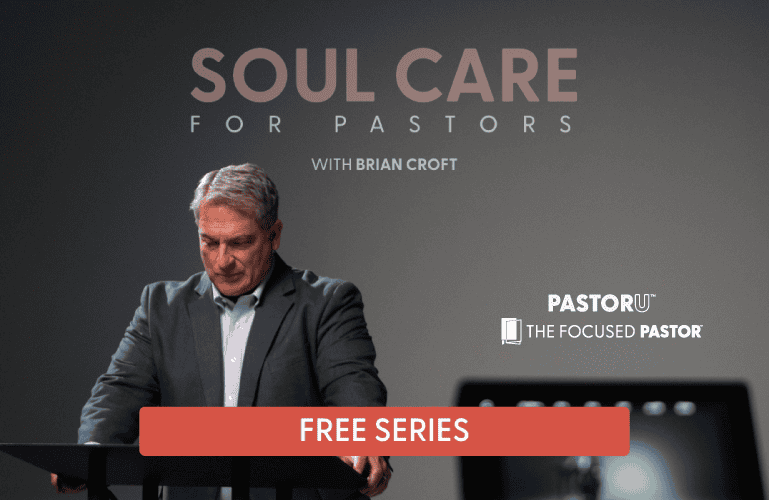Pastoral Ministry and the Beatitudes: Blessed are Those Who Hunger and Thirst for Righteousness
Estimated reading time: 6 minutes
Jesus’s inaugural address in the Gospel of Matthew is the Sermon on the Mount. In it, He sets forth key characteristics of the future citizens of God’s kingdom, and commences with a series of blessings. These are the so-called “Beatitudes” (from Latin beatus, “happy” or “blessed”). What does an heir to God’s kingdom look like? He has already pronounced three blessings on the spiritually poor, those who mourn over sin, and the meek. Then Jesus adds a fourth: “Blessed are those who hunger and thirst for righteousness, for they will be filled” (Matthew 5:4). How can we as pastors exhibit this kingdom trait and encourage people in our congregation to do the same?
A potent metaphor
Being hungry or thirsty is something we all know from experience. Even those of us who are not poverty-stricken can relate to the literal meaning of Jesus’s metaphor. Interestingly, Matthew records a couple instances where Jesus Himself suffered hunger.
The first such instance took place when Jesus was tempted by the devil prior to starting His public ministry. “After fasting forty days and forty nights,” the reader is told, “he [Jesus] was hungry” (Matthew 4:2). Jesus suffered extreme, almost unimaginable hunger. Yet He didn’t succumb to the devil’s temptation to make bread out of stones in the wilderness. Rather, He stated, “It is written: ‘Man shall not live on bread alone, but on every word that comes from the mouth of God’” (Matthew 4:4; quoting Deuteronomy 8:3).
Toward the end of Jesus’s public ministry, after the triumphal entry into Jerusalem, Matthew tells us that Jesus, again, experienced literal hunger. “Early in the morning, as Jesus was on His way back to the city, he was hungry” (Matthew 21:18). While being God in the flesh, Jesus nonetheless, in His humanity, knew what it was like to be hungry. Earlier, Jesus’s disciples, when hungry, had picked some grain in the fields on a Sabbath. When the Jewish leaders alleged they broke the law, Jesus defended them (Matthew 12:1–8).
A powerful parable
Jesus’ statement to believers
But the most powerful background passage for this is His final parable in Matthew’s Gospel. There, Jesus envisions an end-time judgment. He will say to believers, “Come, you who are blessed by my Father; take your inheritance, the kingdom prepared for you since the creation of the world. For I was hungry, and you gave me something to eat, I was thirsty, and you gave me something to drink, I was a stranger, and you invited me in, I needed clothes, and you clothed me, I was sick, and you looked after me, I was in prison, and you came to visit me” (Matthew 25:35–36).
Then the believers reply, “Lord, when did we see you hungry and feed you, or thirsty and give you something to drink? When did we see you a stranger and invite you in, or needing clothes and clothe you? When did we see you sick or in prison and go to visit you?” Jesus will then say, “Truly I tell you, whatever you did for one of the least of these brothers and sisters of mine, you did for me” (Matthew 25:37–40).
Jesus’ statement to unbelievers
Conversely, He will say to unbelievers, “Depart from me, you who are cursed, into the eternal fire prepared for the devil and his angels. For I was hungry, and you gave me nothing to eat, I was thirsty, and you gave me nothing to drink, I was a stranger, and you did not invite me in, I needed clothes, and you did not clothe me, I was sick and in prison, and you did not look after me.”
And when they will ask, “Lord, when did we see you hungry or thirsty or a stranger or needing clothes or sick or in prison, and did not help you?,” Jesus will reply, “Truly I tell you, whatever you did not do for one of the least of these, you did not do for me.” And thus, unbelievers will depart for their eternal punishment, while the righteous will move on to eternal life (Matthew 25:41–46).
Luke goes further
In His account of the Beatitude, Luke gets at the deeper meaning of Jesus’s words. “Blessed are you who hunger now, for you will be satisfied” (Luke 6:21). Conversely, “Woe to you who are well fed now, for you will go hungry” (Luke 6:25). There will be a day of reckoning for those who were comfortable but unwilling to help the less fortunate.
Powerful implications
Jesus’s blessing on those who hunger and thirst for righteousness calls for a deep inner desire for justice. It is a desire so strong, so irrepressible, that it acts on this righteous impulse. It engages in merciful action: feeding and clothing the poor, extending hospitality to strangers, and caring for the sick and those in prison.
James, Jesus’s half-brother, writes regarding this issue. “Suppose a brother or a sister is without clothes and daily food. If one of you says to them, “Go in peace; keep warm and well fed,” but does nothing about their physical needs, what good is it? In the same way, faith by itself, if it is not accompanied by action, is dead” (James 2:15–17).
As pastors, we need to preach the gospel at every opportunity and point people to Christ. But we also need to urge the people in our congregation to put their faith into practice. Are you, and am I, hungry and thirsty for righteousness? Do we have a deep desire to help the less fortunate? Do you have the courage to live by principle and to address instances of exploitation and abuse in our circles? If so, Jesus says, we are blessed, and will be eternally satisfied.
Conclusion
In the meantime, as servants of Christ, we should remember our Lord who sacrificed Himself for others and hung thirsty on the cross (John 19:28). We can learn from the apostle Paul who wrote that he had learned the secret of facing plenty and hunger (Philippians 4:12), just like all the apostles were willing to endure hunger and thirst for the salvation of others (1 Corinthians 4:11).
And in whatever deprivation we may suffer, we can be greatly encouraged by the fact that, in heaven, none of us will suffer hunger or thirst ever again. But Jesus, the good shepherd, will guide us to springs of living water (Revelation 7:16; see also 21:6; 22:17).
Let us, then, live this present life in light of the future. Let us be responsible stewards of the material possessions with which God has entrusted us and use them responsibly. And let us say with the psalmist, “As the deer pants for streams of water, so my soul pants for you, my God” (Psalm 42:1). Such a deep longing for our Creator, and for Christ our Savior, will naturally overflow in compassionate action toward those who need us to be the hands and feet of our merciful God.
© 2025, Andreas Köstenberger. Used by permission.
About The Author

Andreas Köstenberger
Andreas Köstenberger is host at Oak Tree Cottage, a hospitality and coaching ministry for pastors, missionaries, and Christian leaders. He is also cofounder of Biblical Foundations and theologian in residence at Fellowship Raleigh.









